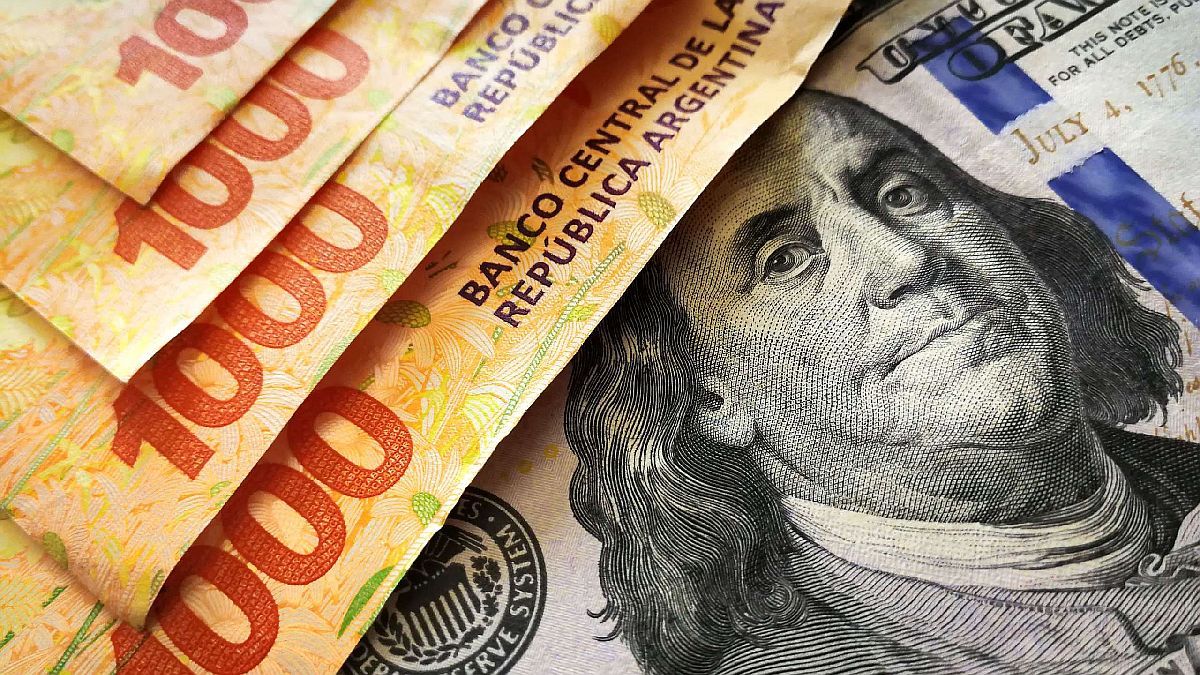“These IPC-linked funds will continue to be very attractive and in high demand,” says Néstor de Cesare, president of Allaria Fondos in Buenos Aires.
Argentina’s mutual funds that invest in inflation-linked debt have had a return of 54% over the past year, almost double the profits that dollar-linked debt showed in the same period, according to data compiled by the consulting firm 1816. Economy & Strategy. The outperformance is even more marked in the last three months: 13.1% for inflation debt, 5.6% for dollar bond funds.
Funds linked to consumer price increases absorbed 43.7 billion pesos ($421 million) inflows in the last 40 days, more than 13 times the 3.3 billion pesos that went into dollar-linked mutual funds, according to 1816 Economy. & Strategy. In the three months before the election, the demand for dollar-linked mutual funds had been four times that of CPI-linked mutual funds.
While the Alberto Fernández government has insisted on telling investors it was not planning a sharp devaluation, those forecasts were met with a heavy dose of skepticism. Investors thought shedding an overvalued currency would be an obvious step to put the economy on a long-term growth path, even as it upset Argentine savers. Many also thought the International Monetary Fund would demand it as part of ongoing negotiations over rescheduling some $40 billion in loan payments.
But the expected devaluation after last year’s midterm elections did not materialize. And the government repeated that it was not in its plans at all, while the peso continued its slow but steady daily depreciation. In this way, investors gained confidence in the peso even as inflation began to accelerate.
Of course, policymakers may decide at any moment that it is time for a major devaluation of the peso. The currency sells for 104 per dollar on the official market, but 209 per dollar on the parallel markets that Argentines use to circumvent controls that severely restrict dollar purchases. It will be more difficult for Argentina to preserve the strength of the peso in the official market as its foreign exchange reserves diminish. Net reserves, which exclude the bank’s foreign-currency liabilities, have fallen to just $1.8 billion, according to consultancy Anker Latin America.
Still, investors are betting that inflation-linked debt will offer higher returns. Yields have fallen into negative territory amid rising demand. In inflation-linked Treasuries due next year they are down to -1.8% from 6.35% in September.
The government has announced that utility rates will rise in the first quarter and monetary expansion has accelerated to an annual pace of 40% in December from 30% in October, putting further pressure on inflation.
Last week, the country posted its fastest monthly inflation rate in eight months, leaving annual inflation for 2021 at 50.9%. Runaway price increases are making it difficult for Argentina to come up with a credible plan to stabilize the economy amid talks with the IMF to reschedule payments of some $40 billion owed to the body.
“There will be expectations of even higher inflation,” said de Cesare of Allaria Fondos.
Source From: Ambito
David William is a talented author who has made a name for himself in the world of writing. He is a professional author who writes on a wide range of topics, from general interest to opinion news. David is currently working as a writer at 24 hours worlds where he brings his unique perspective and in-depth research to his articles, making them both informative and engaging.




